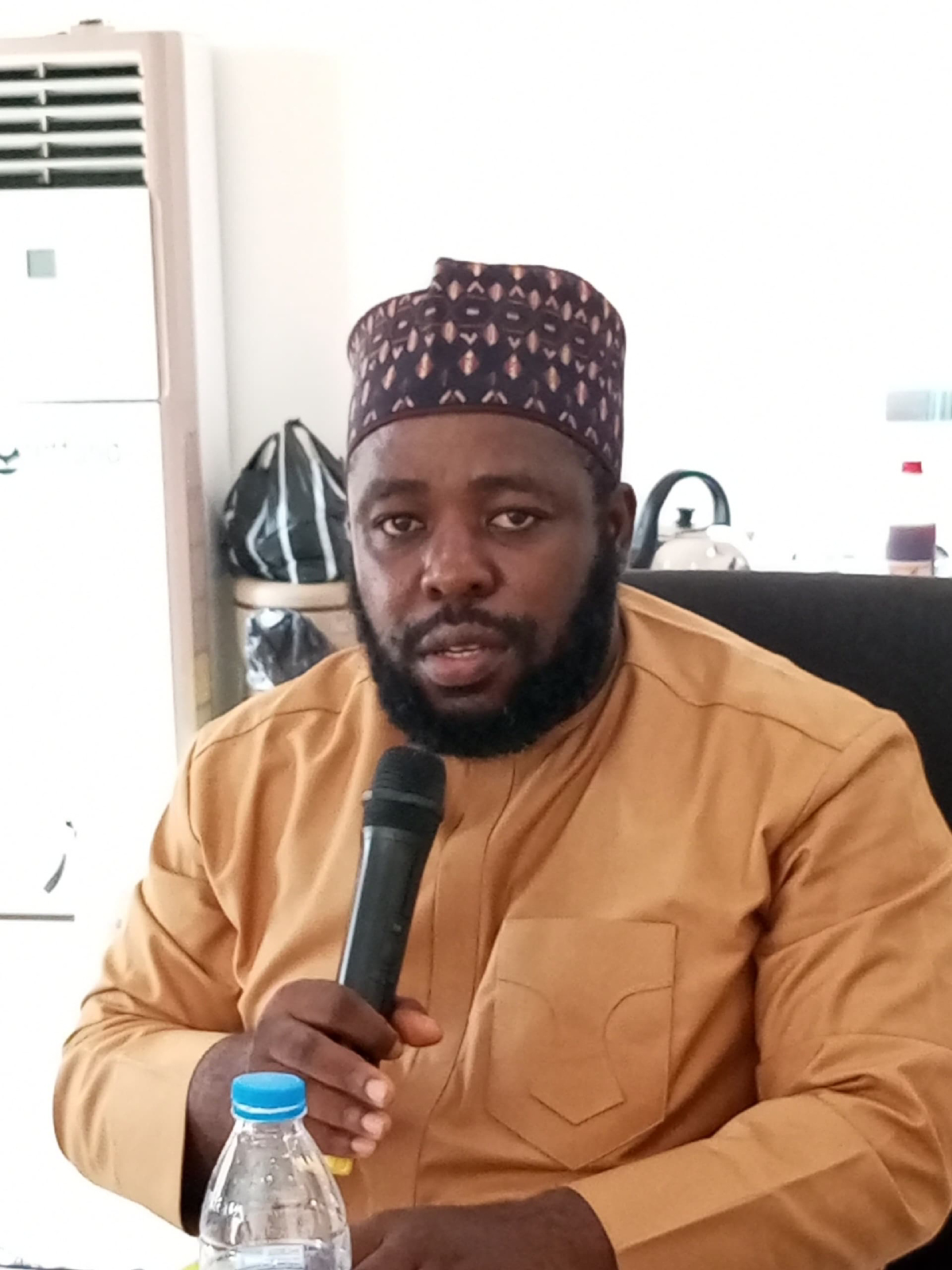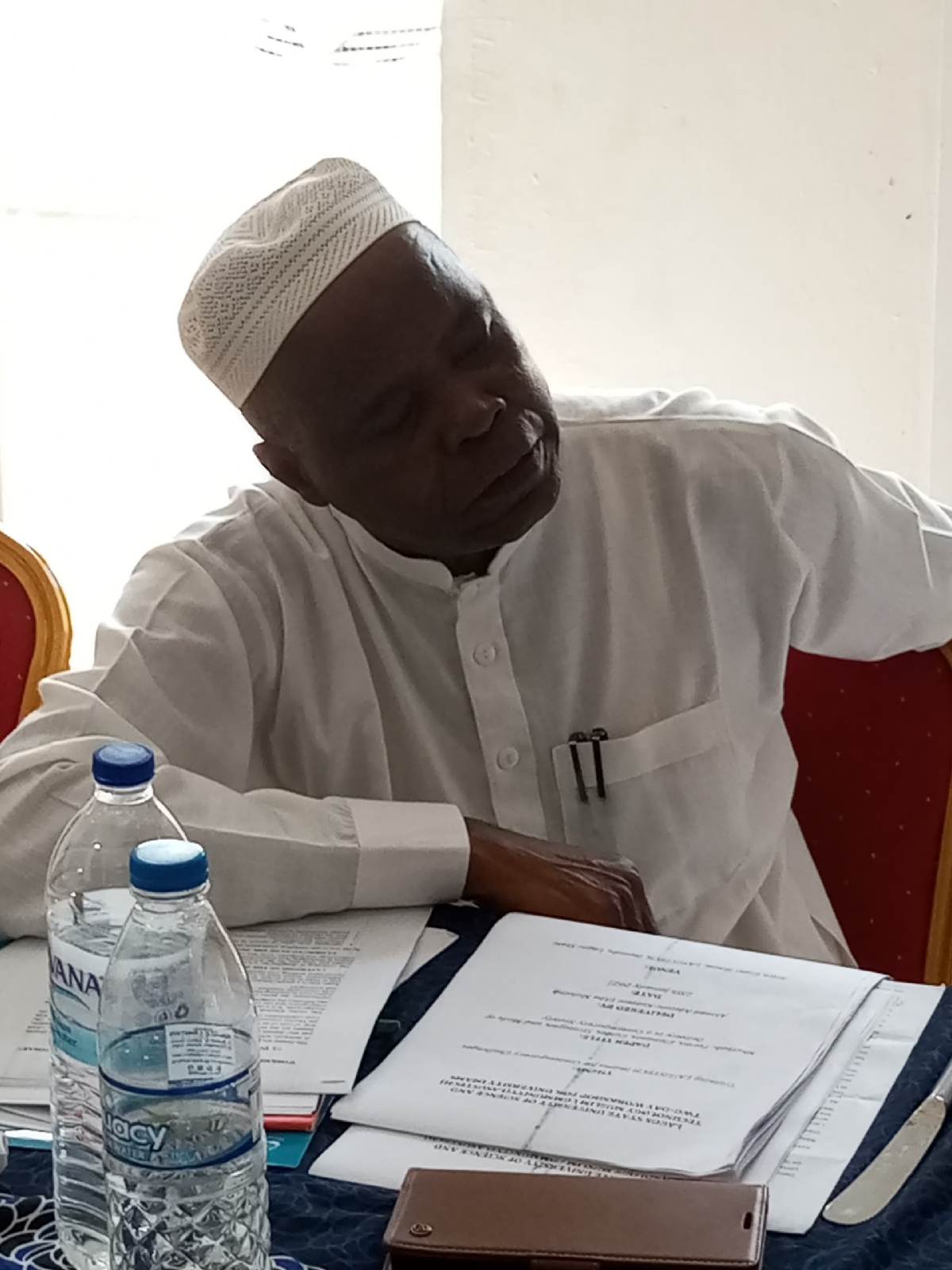By Adelusi Abraham, Ademuyiwa Balikis, and Etim Precious
The Muslim Community of Lagos State University of Science and Technology (LASUSTECH) organized a two-day workshop titled "Training LASUSTECH Imams for Contemporary Challenges", aimed at equipping Imams with the essential skills to address modern societal issues.
The event, which took place on January 25 and 26, 2025, at Ariya Hospitality Ltd., Ikorodu, Lagos, focused on enhancing leadership, communication, and community engagement among the university's Islamic leaders.
The workshop aimed to provide LASUSTECH Imams with both theoretical and practical insights to enhance their leadership roles within the Muslim community.
It sought to refine their skills in delivering impactful Khutbahs (sermons) while fostering their ability to address societal reformation, ethical community relations, and effective sermon planning and delivery.
The workshop featured insightful lectures by Barrister Ahmad Adetola-Kazeem and Professor Tajudeen Yusuf from the University of Lagos. Their sessions delved into critical topics such as the essential components of impactful Khutbahs, the duties of communities towards Imams, and strategies for addressing challenges faced by Muslim leaders in modern times.
Barrister Adetola-Kazeem described Khutbah as a vital tool for spiritual guidance, moral reminders, and social instruction.
He emphasized that Jumah Khutbahs should inspire self-improvement and addressed key elements, including praising Allah, sending salutations upon Prophet Muhammad (SAW), and calling for piety (Taqwa).
He also highlighted prophetic practices in delivering Khutbahs, such as standing during the sermon, sitting briefly between two Khutbahs, and ensuring clarity and fluency.
Adetola-Kazeem outlined guidelines for effective Khutbah delivery, urging Imams to: "Adhere to the Qur’an and Sunnah, prepare thoroughly, use relevant and relatable content, focus on Tazkiyah (purification of the soul), maintain moderation, clarity, and simplicity."
To engage audiences effectively, he recommended incorporating stories, addressing contemporary issues, avoiding controversial topics, and utilizing emotional appeals. He further encouraged the use of technology to enhance congregants’ comfort during sermons.
Dr. AbdulAzeez Abioye Lawal, the Chief Imam of LASUSTECH, described the workshop as a historic moment for the Muslim community. In his remarks, he emphasized the need for Imams to engage in serious deliberations on challenges facing the community and work collectively toward solutions.
“We are here for serious business. This is the first time in our community’s history that we are organizing such a program. As leaders of the Muslim community, our actions reflect on the broader Muslim Ummah. This workshop allows us to strategize on effective communication, community management, and fostering better relations with people outside the Islamic community,” he said.
Dr. Lawal also highlighted the importance of addressing issues such as communication barriers and collaboration with non-Muslim groups to showcase the beauty of Islam.
Dr. Oladayo Ramon Ibrahim, Chairman of the LASUSTECH Muslim Community, welcomed participants with a speech emphasizing the crucial role of Imams as guardians of the faith and role models for the Muslim community.
“As we all recognize, Imams are the backbone of our Muslim communities. Their words have the power to inspire, heal, and transform. This workshop is a testament to our commitment to equipping Imams with the tools needed to excel in their noble endeavors,” Dr. Ibrahim noted.
He further expressed gratitude to the facilitators and organizers for their dedication to empowering LASUSTECH Imams and fostering social cohesion, tolerance, and understanding.
The workshop included a lively question-and-answer segment where participants raised concerns on various issues. Addressing a query on women’s attendance at prayers, Barrister Adetola-Kazeem explained that while women are not obligated to attend, their participation is highly rewarded.
He also advised on managing language in multilingual settings by delivering the main Khutbah in a primary language and summarizing it in a secondary one.
In response to a question by Abdullah Sulaimon, Ameer of the Surulere campus, on the difference between gifts and Sadaqah, Adetola-Kazeem clarified that gifts are given to honor recipients, whereas Sadaqah serves a charitable purpose.
Engineer M.O. Dawodu, a member of the mission board, acknowledged the community’s efforts in supporting students and members in need, including academic assistance and welfare. He urged the Muslim community to continue improving on their initiatives.
Mr. Hassan Nurudeen, a member of the mission board, commended the speakers and participants. He described the lectures as thought-provoking, providing a framework for measuring the responsibilities of contemporary Imams.
“Today’s sessions emphasized the relevance of Imams in modern society. We must continually learn and adapt to serve our communities effectively,” he remarked.
The workshop was a landmark initiative, marking a new chapter in empowering LASUSTECH’s Imams to address contemporary societal issues while adhering to Islamic teachings.
The event concluded with renewed commitments to effective leadership, community engagement, and fostering harmony within and beyond the Muslim community.






Thank God for this
ReplyDelete